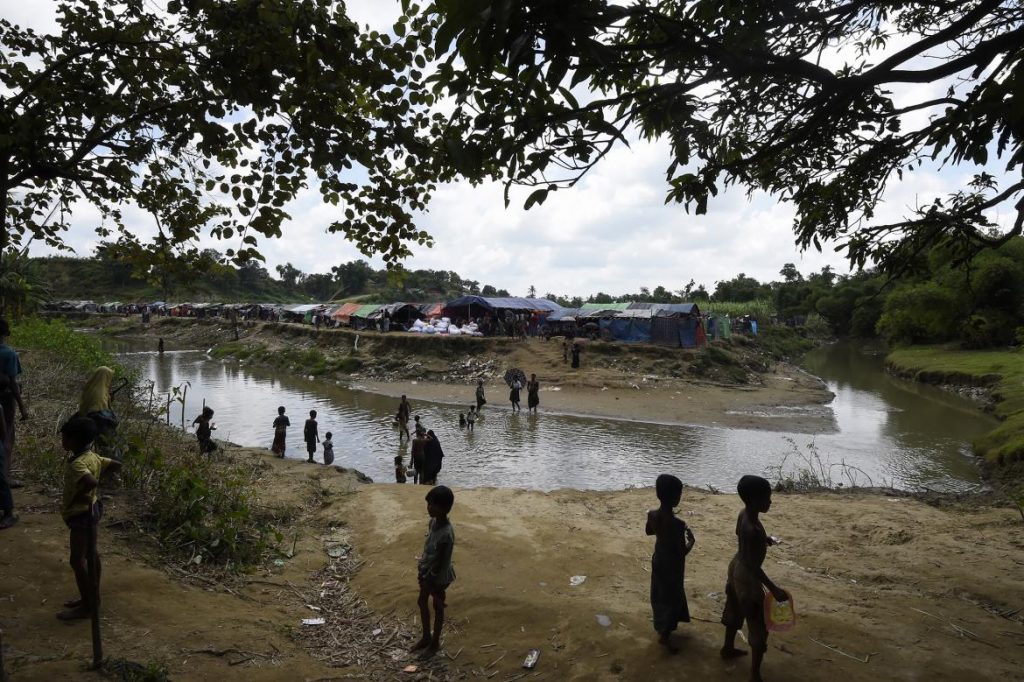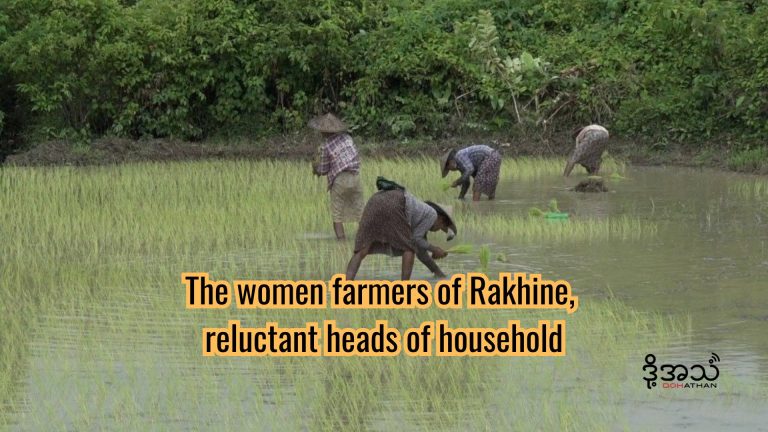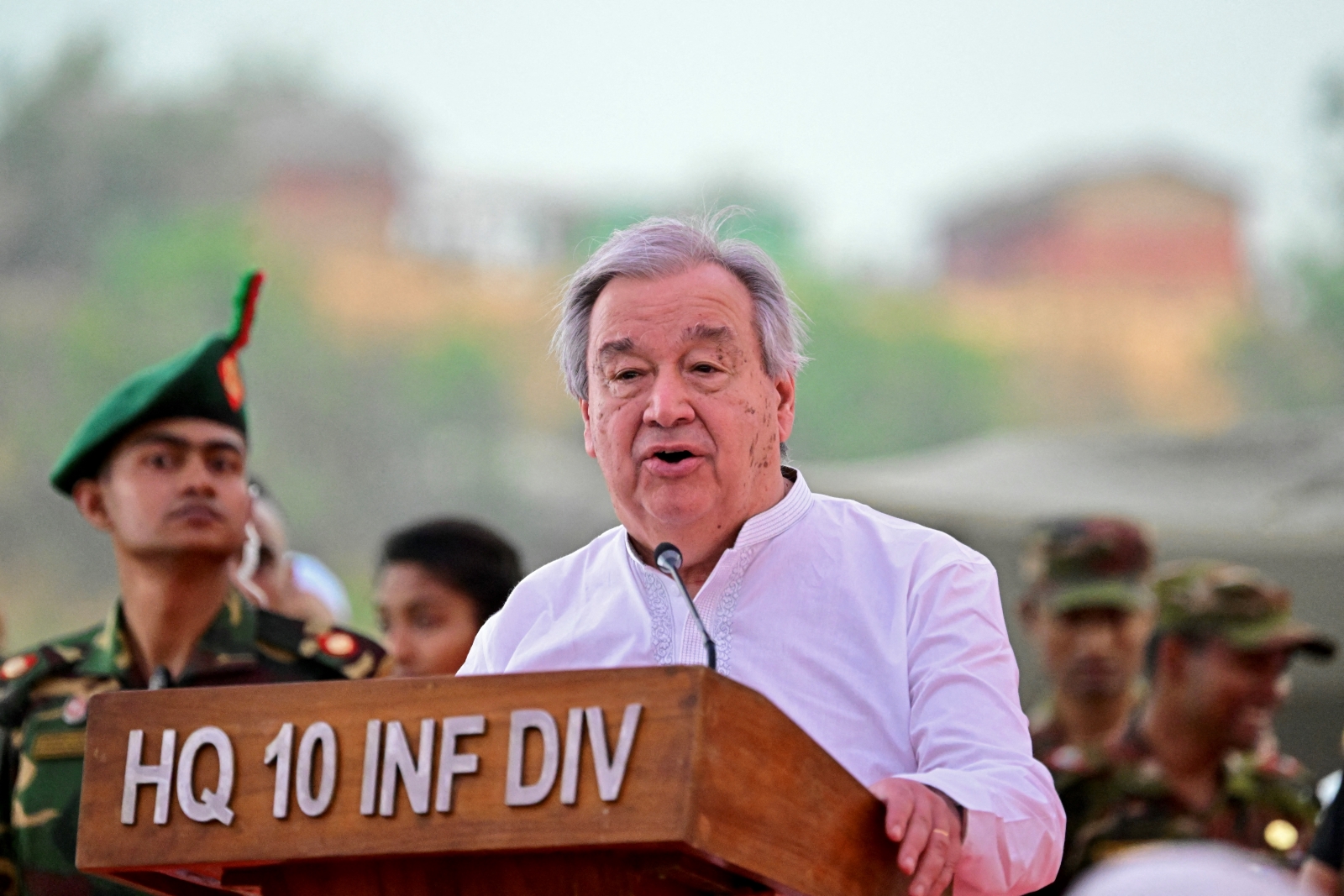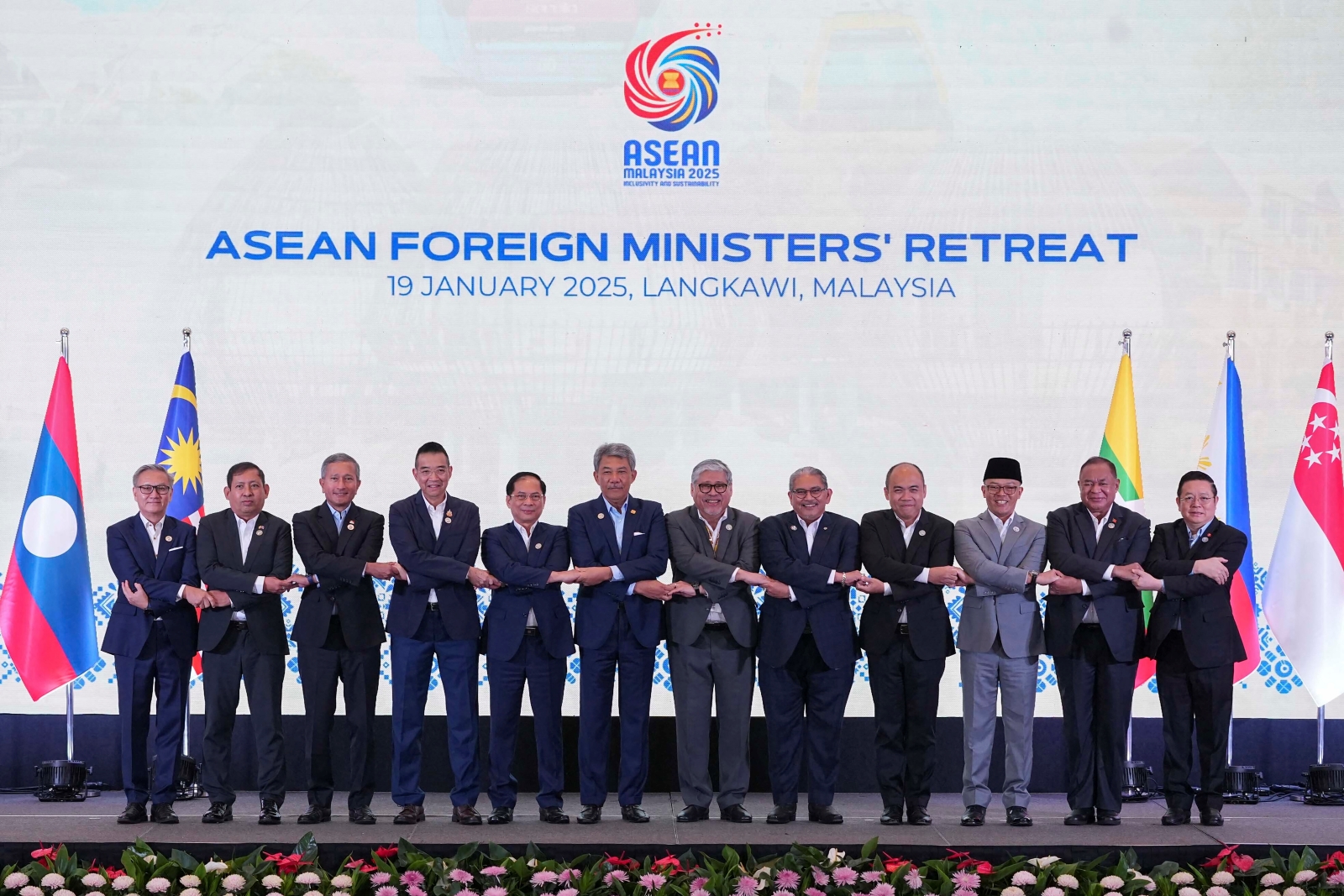By NYAN HLAING LYNN | FRONTIER
NAY PYI TAW — The verification of refugees stranded in the “zero line” buffer zone between Myanmar and Bangladesh will be carried out by the two countries with no other involvement, a senior official in Nay Pyi Taw said on February 21.
“It has been made clear at the United Nations that Myanmar would not accept international intervention in this matter,” U Myint Thu, permanent secretary of the Ministry of Foreign Affairs, told Frontier.
He said leaders of the refugees in the border buffer zone had been told that the process to verify their eligibility for repatriation would involve officials from Myanmar and Bangladesh.
About 6,500 refugees, including those who fled after the military clearance operation in northern Rakhine State last August following attacks by Islamic militants, are living in the buffer zone.
Support more independent journalism like this. Sign up to be a Frontier member.
Myint Thu said the refugees had been told that those who were verified would be helped by Myanmar “to go back where they belong and the Bangladesh authorities have promised to help in the process”.
He said “nobody” could say when the verification process would finish.
Myint Thu denied an AFP report that the Tatmadaw was building trenches along the border and that it was being patrolled by soldiers.
“In accordance with [a bilateral] agreement, the border police of both countries are patrolling the border and no Tatmadaw troops are on duty there,” he said.
Government spokesperson U Zaw Htay said it was believed that some of the militants who took part in the coordinated attacks on security posts in northern Rakhine last August were hiding among the refugees in the buffer zone.
“We have the intelligence. We will make a list and verify if any of them are among the 1,300 terrorists we have announced,” Zaw Htay told a media briefing in the capital on February 21.
He said the buffer zone refugees were being used to add international pressure on Myanmar.
Zaw Htay said the refugees had been able to stay in the no man’s land zone because they were receiving food and medicine from “some groups and organisations”.
Myanmar is reported to have told Bangladesh to prevent NGOs from providing aid to the refugees.
Officials from the two countries had visited the buffer zone for talks with the refugees on February 20, Reuters reported.
“We visited the Rohingya with the Myanmar delegation and requested them to go back to their homes. They said … they are willing to return to their land, but for that they need to ensure safety and security,” Bangladeshi Relief and Refugee Repatriation Commissioner, Mr Mohammad Abul Kalam, was quoted as saying by Reuters.
A leader of the refugees in the buffer zone told Reuters that during the visit they had reiterated their demands, which include having UN peacekeeping forces deployed in Rakhine and for aid agencies and the media to be given free access to the state.
The UN refugee agency, UNHCR, has expressed concern that the refugees may be forced back to Myanmar without due consideration for their safety.







